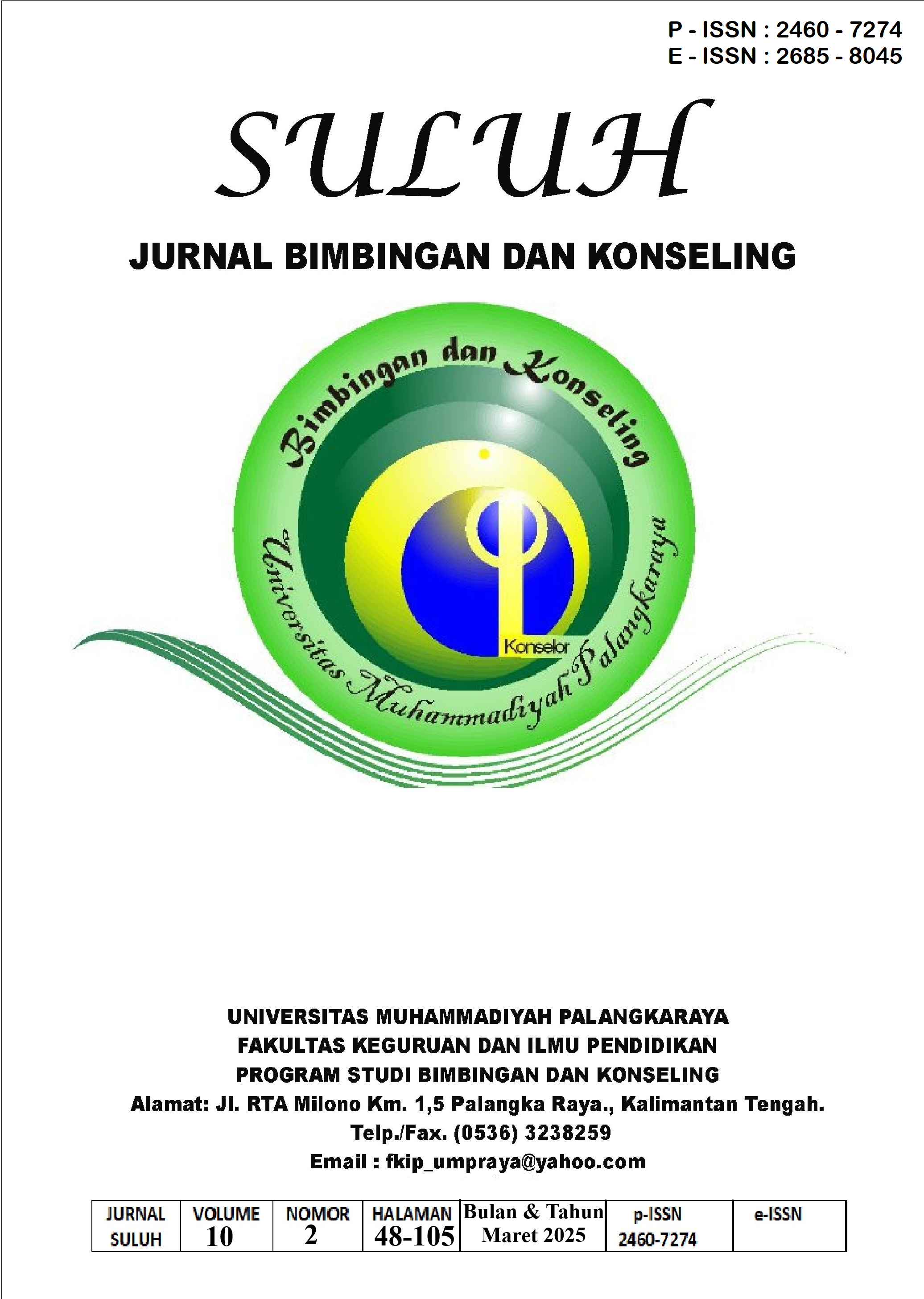The Relationship Between Students' Critical Thinking Skills in Mathematics Learning Reviewed from Reflective and Impulsive Cognitive Styles
Main Article Content
Abstract
This study aims to determine the relationship and differences in critical thinking skills between students with reflective and impulsive cognitive styles in learning mathematics in college. Critical thinking skills are an important competency needed to understand and solve complex mathematical problems. Cognitive style, which reflects an individual's preferences in processing information, can affect the way students learn and think critically. The population of this study was 147 students consisting of all students of the 2023 intake who took Mathematics courses, but the sample taken was 64 students. The research instrument used a critical thinking skills test and a cognitive style test. The critical thinking skills test is in the form of mathematical questions that require in-depth analysis and evaluation, while the cognitive style test can use instruments such as the Matching Familiar Figures Test (MFFT) to group students into reflective and impulsive cognitive styles. Analysis of the quantitative data obtained will be analyzed using descriptive and inferential statistics. Statistical analysis can include correlation tests to see the relationship between cognitive style and critical thinking skills, as well as difference tests to compare critical thinking skills between groups of students with impulsive and reflective cognitive styles. The results of the study showed that there was a significant relationship (<0.05) between critical thinking skills and students' cognitive styles in learning mathematics. And there was a significant difference in critical thinking skills between students with impulsive cognitive styles and students with reflective cognitive styles. The differences were in the speed and accuracy of problem solving, evaluation and decision-making skills, and understanding of mathematical concepts.
Downloads
Article Details

This work is licensed under a Creative Commons Attribution-ShareAlike 4.0 International License.
All rights reserved. This publication may be reproduced, stored in a retrieval system, or transmitted in any form or by any means, electronic, mechanical, photocopying, recording.
References
Aini, K. N., & Rosyid, H. (2022). ANALISIS BERPIKIR KRITIS MAHASISWA DALAM MEMECAHKAN MASALAH DITINJAU DARI GAYA KOGNITIF. Euclid, 9(1), 47–55. https://doi.org/10.33603/e.v9i1.6247
APPULEMBANG, O. D. (2015). PROFIL PEMECAHAN MASALAH ALJABAR BERPANDU PADA TAKSONOMI SOLO DITINJAU DARI GAYA KOGNITIF KONSEPTUAL TEMPO SISWA SMA NEGERI 1 MAKALE TANA TORAJA [Doctoral, Universitas Negeri Makassar]. https://eprints.unm.ac.id/22999/
Astuti, S. (2024). PENINGKATAN KEMAMPUAN BERPIKIR KRITIS DAN KOMPETENSI MAHASISWA PGSD MENGGUNAKAN FITUR F-LEARN ASSIGMENT DAN FORUM. Scholaria: Jurnal Pendidikan dan Kebudayaan, 14(2), Article 2. https://doi.org/10.24246/j.js.2024.v14.i2.p144-154
Awaliya, V. I., & Masriyah, M. (2022). PROSES BERPIKIR KRITIS SISWA SMA DALAM MEMECAHKAN MASALAH MATEMATIKA DITINJAU DARI GAYA KOGNITIF REFLEKTIF DAN IMPULSIF. MATHEdunesa, 11(1), 70–79. https://doi.org/10.26740/mathedunesa.v11n1.p70-79
Bakar, M. T., Nani, K. L., & Hadi, D. (2019). EKSPLORASI DISPOSISI MATEMATIS MAHASISWA PENDIDIKAN GURU SEKOLAH DASAR MELALUI MODEL PEMBELAJARAN DNR-BASED INSTRUCTION. Teorema: Teori dan Riset Matematika, 4(2), Article 2. https://doi.org/10.25157/teorema.v4i2.2691
ELSA ELVIANI, -. (2022). HUBUNGAN KEMAMPUAN KOMUNIKASI MATEMATIS, GAYA KOGNITIF, DAN HABITS OF MIND [Skripsi, UNIVERSITAS ISLAM NEGERI SULTAN SYARIF KASIM RIAU]. https://repository.uin-suska.ac.id/59281/
Kertiyani, N. M. I., & Sarjana, K. (2023). PENINGKATAN KEMAMPUAN BERPIKIR KRITIS MAHASISWA SETELAH PANDEMI: TINJAUAN DARI SISTEM PEMBELAJARAN DARING DAN LURING. Nabla Dewantara: Jurnal Pendidikan Matematika, 8(1), Article 1. https://doi.org/10.51517/nabla.v8i1.207
Khasanah, F., & Octavianti, C. T. (2017). PENINGKATAN KEMAMPUAN BERFIKIR KRITIS MAHASISWA MELALUI PEMBELAJARAN SAVI DENGAN MENGOPTIMALKAN MATH EXPERT. Union: Jurnal Ilmiah Pendidikan Matematika, 5(2), Article 2. https://doi.org/10.30738/.v5i2.1219
Kusumawati, R., Sudargo, S., & Nizaruddin, N. (2024). Analisis Kesulitan Siswa SMP dalam Menyelesaikan Masalah Matematika Ditinjau Dari Gaya Kognitif Reflektif dan Impulsif. Imajiner: Jurnal Matematika Dan Pendidikan Matematika, 6(1), 13–17. https://doi.org/10.26877/imajiner.v6i1.16856
Ni’mah, N. (2018). Analisis berpikir kritis mahasiswa PGSD dalam memecahkan masalah matematika ditinjau dari gaya kognitif reflektif dan impulsif / Nurun Ni’mah [Masters, Universitas Negeri Malang]. https://repository.um.ac.id/63263/
Nuyana, M., Handayanto, A., & Setyowati, R. D. (2022). Analisis Kemampuan Komunikasi Matematis Siswa dalam Menyelesaikan Masalah Matematika Ditinjau dari Gaya Kognitif Reflektif dan Impulsif. Imajiner: Jurnal Matematika Dan Pendidikan Matematika, 4(3), 214–221. https://doi.org/10.26877/imajiner.v4i3.9515
Oktaviani, I. A., Ariyanto, L., & Utami, R. E. (2020). Analisis Kemampuan Berpikir Kritis Siswa dalam Menyelesaikan Masalah Matematika Ditinjau dari Gaya Kognitif Reflektif dan Kognitif Impulsif. Imajiner: Jurnal Matematika Dan Pendidikan Matematika, 2(6), 485–491. https://doi.org/10.26877/imajiner.v2i6.6753
Puriani, R. A., & Dewi, R. S. (2021). Konsep adversity & problem solving skill. Bening Media Publishing.
Rewi Konitah. (2022). KEMAMPUAN PEMECAHAN MASALAH PADA SOAL MATEMATIKA DITINJAU DARI GAYA KOGNITIF REFLEKTIF DAN IMPULSIF. JISMA: Jurnal Ilmu Sosial, Manajemen, dan Akuntansi, 1(1), 9–20. https://doi.org/10.59004/jisma.v1i1.5
Sangila, M. S., & Safaria, S. A. (2017). Pengaruh Model Pembelajaran ARIAS dan Problem Based Learning terhadap Hasil Belajar Matematika Siswa SMP Ditinjau Dari Gaya Kognitif. Al-TA’DIB: Jurnal Kajian Ilmu Kependidikan, 10(1), 37–54. https://doi.org/10.31332/atdb.v10i1.551
Susilowati, Y., & Sumaji, S. (2021). INTERSEKSI BERPIKIR KRITIS DENGAN HIGH ORDER THINKING SKILL (HOTS) BERDASARKAN TAKSONOMI BLOOM. JURNAL SILOGISME : Kajian Ilmu Matematika dan Pembelajarannya, 5(2), Article 2.
Wulandari, S., Hayati, R., & Hendriani, M. (2024). STUDI LITERATUR - SCAFFOLDING DENGAN METODE DEFRAGMENTING STRUKTUR BERPIKIR MASALAH HOTS. Dharmas Education Journal (DE_Journal), 5(1), 15–25. https://doi.org/10.56667/dejournal.v5i1.1196

